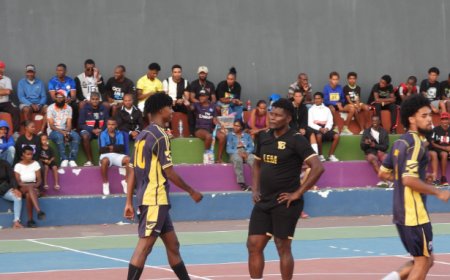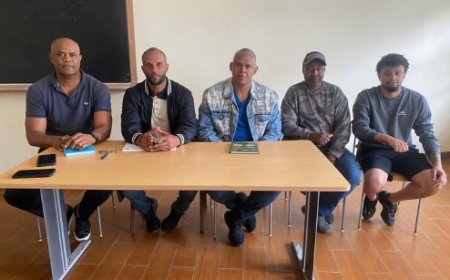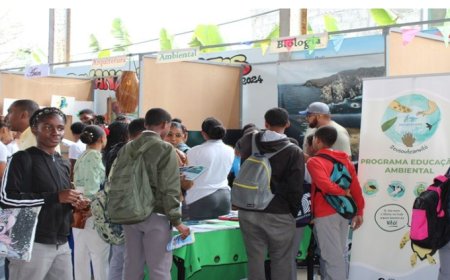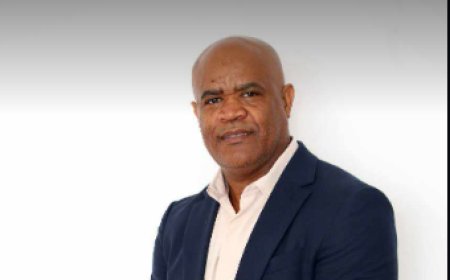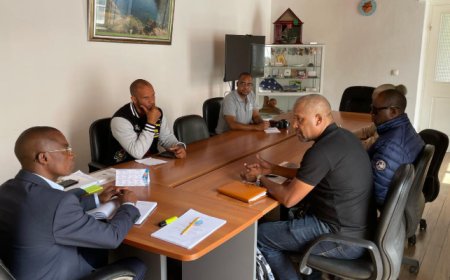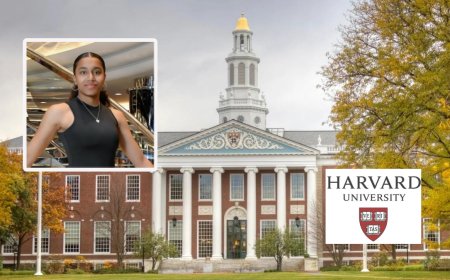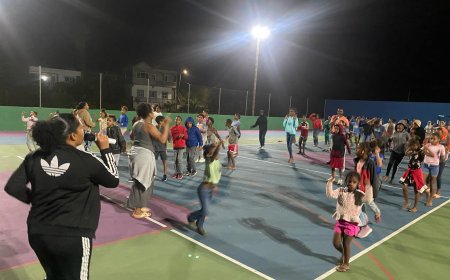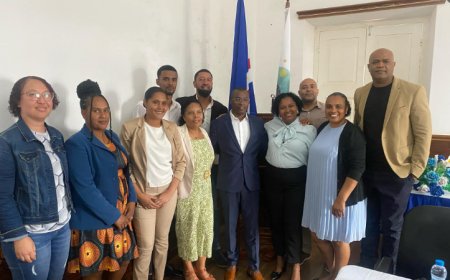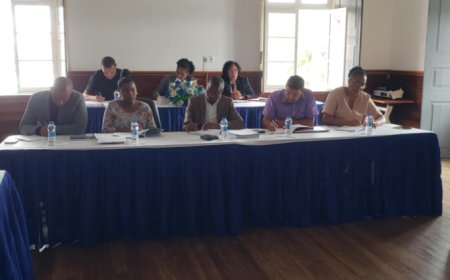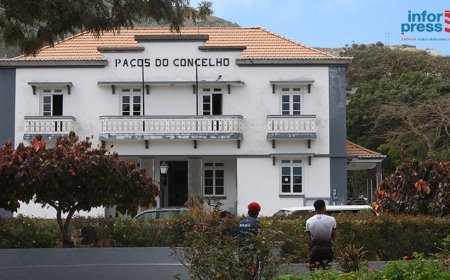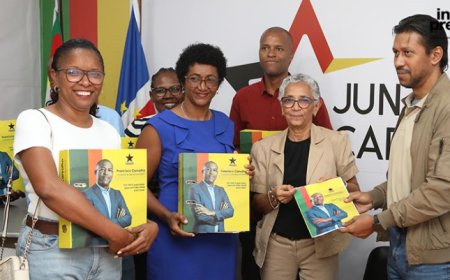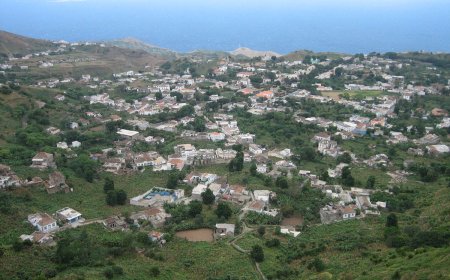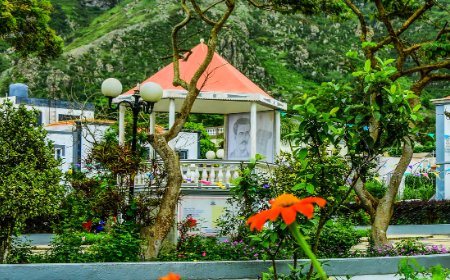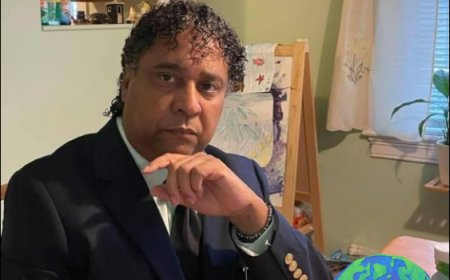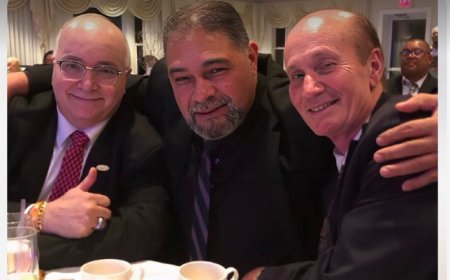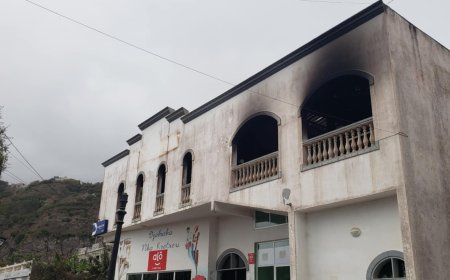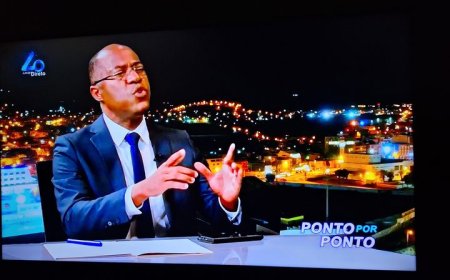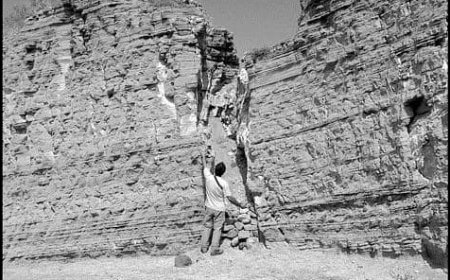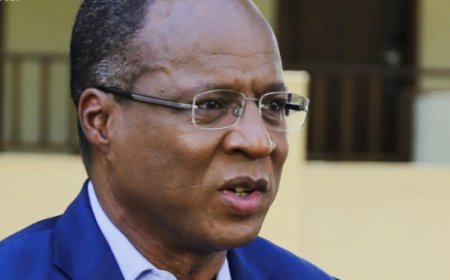Brava/Autárquicas 2024: Duel of giants, two visions and one destiny
Introduction The political scenario of Ilha da Brava is about to be transformed by an electoral confrontation between two heavyweights: Francisco Tavares (MPD), current Mayor for the MPD, and Amandio Brito, newcomer to politics and candidate for PAICV. This article proposes to analyze the profiles, strategies and possible developments of this electoral dispute that promises to polarize public opinion on the island, being certain that this is a personal opinion and an external vision of someone who has been away from political affairs for some time.
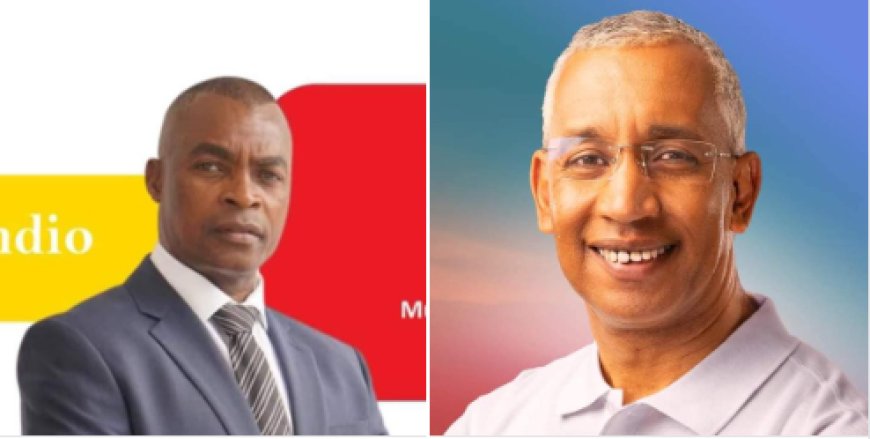
Francisco Tavares: The practical, experienced politician, but a little individualistic
Francisco Tavares has emerged as a dominant figure in local politics, currently serving as Mayor of Brava. His approach is described as practical and direct, reflecting a leadership style that values tangible results over bureaucratic processes. Tavares is known for cultivating a certain individualism, which can be interpreted as an expression of his independence and determination in decision-making. However, this characteristic can also limit your ability to form consensus or long-term collaborations.
Amandio Brito: The methodical technocrat
On the other side of the spectrum is Amandio Brito, whose entry into politics represents a significant change. A technocrat by training and an unconditional supporter of planning, Brito brings with him a meticulous and detailed approach to solving problems. His lack of direct political experience is offset by a well-established reputation as a competent and respected professional on the island. His methodical style can be an asset in managing public resources and implementing data-based policies.
Comparative analysis and electoral strategies
The confrontation between Tavares and Brito is not just limited to personal differences, but also involves different political and ideological strategies. Tavares, with his consolidated political experience, will likely focus on highlighting his achievements and projects during his term, appealing to his established voter base and consolidating his image as a pragmatic executor.
On the other hand, Amandio Brito will have to win voters' trust based on his promises of a more planned and efficient approach. Your campaign can focus on constructive criticism of the weaknesses of the current administration and presenting detailed proposals to improve specific areas of local governance.
Francisco Tavares: The challenger of continuity
Francisco Tavares, as holder of the position of President of the City Council, has a significant advantage as an incumbent. Your campaign will likely highlight the projects and achievements achieved during your current term. It can emphasize improvements in local infrastructure, advances in essential public services such as education and health, as well as economic development initiatives that benefit the Brava community. Tavares can also tap into his experience in dealing with the island's specific challenges, such as sustainable tourism and environmental preservation.
However, Tavares' campaign will not be exempt from criticism. Opponents may point to flaws in policy execution, issues of administrative transparency or perceived failures in priority areas that are not fully addressed. Additionally, his more individualistic style may be a point of debate, especially if he fails to demonstrate support-building or teamwork skills.
Amandio Brito: The commitment to renewal and technical competence
On the other hand, Amandio Brito brings with him a narrative of renewal and technical competence. His campaign will likely focus on criticizing aspects of the current administration that he considers deficient, promising a more planned and data-driven approach to solving the island's chronic problems. Brito can highlight his experience as a technocrat, suggesting that his management would be more efficient and transparent, with a clear emphasis on accountability and citizen participation.
However, Brito's direct political inexperience could also be a challenge. He will need to convince voters that his technical experience will translate into effective political leadership skills and the ability to deal with the complexities of local public administration. His campaign will likely seek to attract voters unhappy with the status quo and those who value technical competence over conventional political experience.
Key themes and questions
Economic development and tourism
Economic development, especially in the context of sustainable tourism, will be a crucial topic. Both candidates will likely present different visions on how to boost the local economy, balancing economic growth with environmental preservation and social benefits for the people of Brava.
Infrastructure and public services
The quality of infrastructure and public services will also be in focus. From roads and transportation to education and healthcare, voters will be paying attention to each candidate's concrete promises and achievements in these vital fields.
Sustainability and environment
Given the environmental vulnerability of Ilha da Brava, issues of sustainability and environmental protection will be decisive for many voters. Both candidates will have to present clear policies on how to address local environmental and climate challenges.
Expectations and potential electoral impact
The election between Francisco Tavares and Amandio Brito will not only define who will lead the Brava City Council in the coming years, but will also have broader implications. The outcome could influence future political dynamics on the island, in addition to shaping public perception about the effectiveness and legitimacy of local government.
Tavares' experience and familiarity with voters could guarantee him a solid base of support, while Brito could attract voters seeking a change of style and a more technical approach to local challenges.
Amandio Brito: The love for education and technical competence
Amandio Brito, as a technocrat and newcomer to politics, stands out not only for his methodical and planned approach, but also for his deep commitment to education. This aspect of his personality and political proposal could be crucial in differentiating him from Francisco Tavares and captivating voters concerned about the educational future of Ilha da Brava.
Brito, known for his reputation as a competent and meticulous professional, is likely to advocate for educational policies that emphasize teaching quality, equitable access to education, and the development of critical skills for the local job market. Your campaign may highlight specific proposals to improve schools, increase investment in teacher training and promote innovative educational initiatives that prepare young people from Braga for the challenges of the future.
Furthermore, Brito's commitment to education can be seen as a sign of his long-term vision for the island's sustainable development. Investing in education not only benefits individuals, but also strengthens the foundation for more robust economic growth and a more inclusive and informed society.
Francisco Tavares: Investing in infrastructure and local development
On the other hand, Francisco Tavares has demonstrated a clear focus on physical and infrastructural development during his term as President of Brava City Council. His love for the island can be seen in the implementation of projects that aim to improve the quality of life of citizens by improving roads, water and sanitation networks, public facilities and other vital infrastructure.
Tavares may argue that infrastructure development is fundamental to economic growth and to attracting external investment that benefits the entire community. His administration may have focused on creating the physical foundations necessary for progress, positioning Brava as a more attractive destination for tourism and as an environment conducive to business development.
The contrast of visions and priorities
The difference between Amandio Brito and Francisco Tavares in relation to education and infrastructure reveals not only different leadership styles, but also different views on how to achieve sustainable and inclusive development on Brava Island.
While Brito bets on education as an essential catalyst for long-term social and economic progress, Tavares focuses his efforts on building the physical foundations that support immediate economic growth and improve citizens' standard of living through modern and efficient infrastructure.
Electoral impact and voters' decisions
As voters weigh their choices between these two approaches, they will be evaluating not only campaign promises but also the tangible accomplishments and perceived results of each candidate during their previous terms. The final decision may reflect not only individual preferences, but also the collective aspirations of the Brava community in relation to the type of leadership and development they desire for the future.
In short, the electoral confrontation between Francisco Tavares and Amândio Brito on Ilha da Brava represents not only a test for individual candidates, but also a reflection of the preferences and priorities of Brava voters. The choice between continuity and renewal, between political experience and technical competence, will be crucial in determining the political and socioeconomic future of the island.
Analysis of these two candidates reveals an interesting dynamic between an established politician and a promising newcomer. The voters' final decision will not only define the next leader of the City Council, but will also define the direction of Ilha da Brava's development in the coming years.
As the campaign develops, issues such as infrastructure, public services, economic development and sustainability are likely to dominate the debate. The choice between Tavares and Brito will be a reflection of the priorities of Brava voters: whether they prefer the continuity and proven experience of Tavares or the promise of a new technical and planned vision with Amândio Brito.
Ultimately, the outcome of this election will not only shape the political future of Ilha da Brava, but will also provide valuable insights into citizens' preferences and expectations regarding local leadership and management. Victory will depend not only on the individual qualities of the candidates, but also on the ability to mobilize their respective electoral bases and the ability to communicate a convincing vision for the island's future.
The clash between Francisco Tavares and Amandio Brito promises to be not only a battle of ideas and leadership styles, but also a crucial test for local democracy on Brava Island. As voters prepare to decide the direction of their community, they are faced with a choice that could redefine not only the coming years, but also the historical and political course of this small island of Cape Verde.
This article sought to shed light on the main protagonists of this duel of giants, offering a detailed analysis of their characteristics, strategies and the potential impact of their candidacies, making it clear that it is an analysis of the moment subject to changes over time, until the elections.
Certainly! Let's continue delving deeper into the analysis of the political clash between Francisco Tavares and Amandio Brito on Ilha da Brava.
Moises Santiago
7/15/2024





